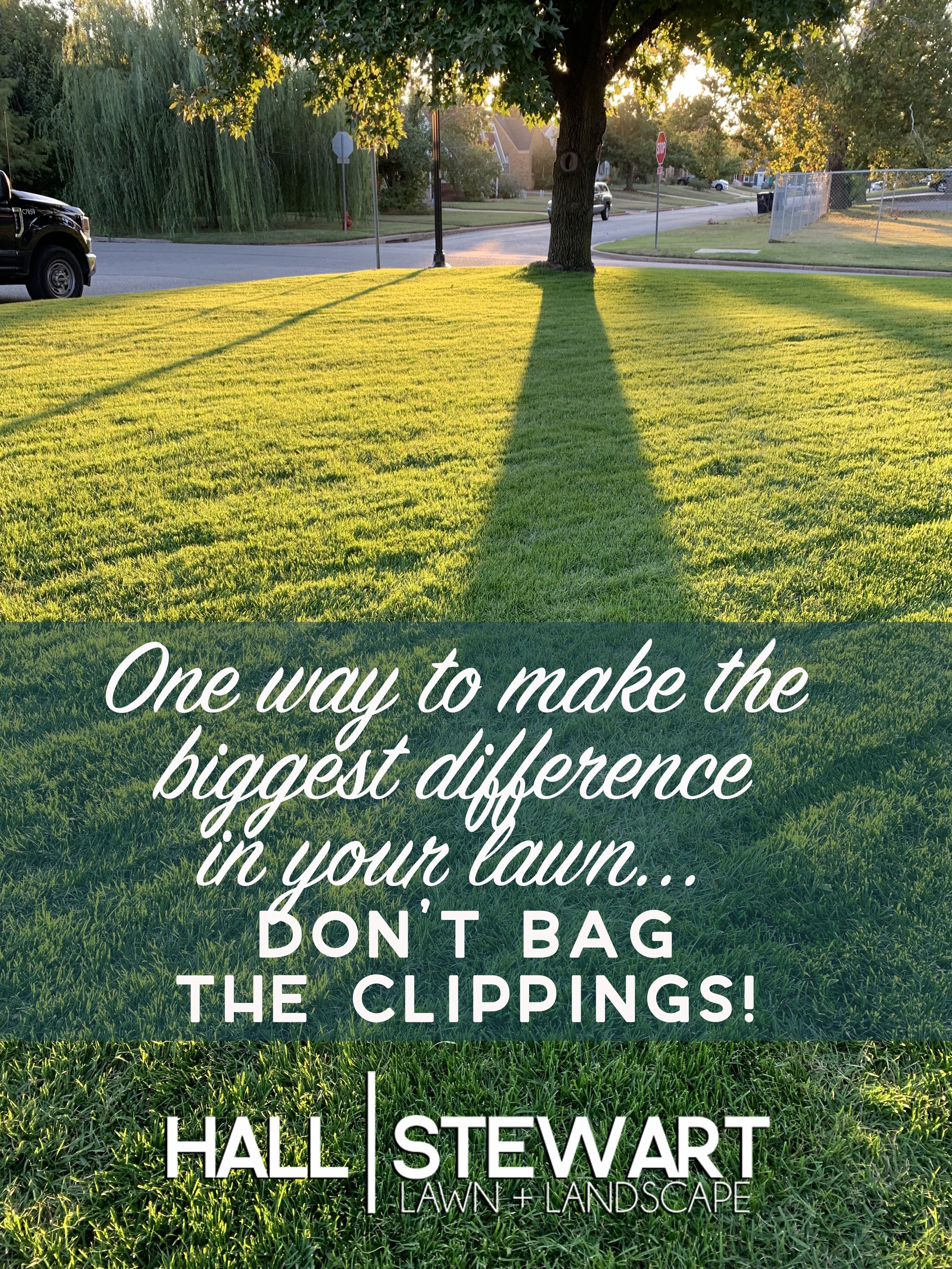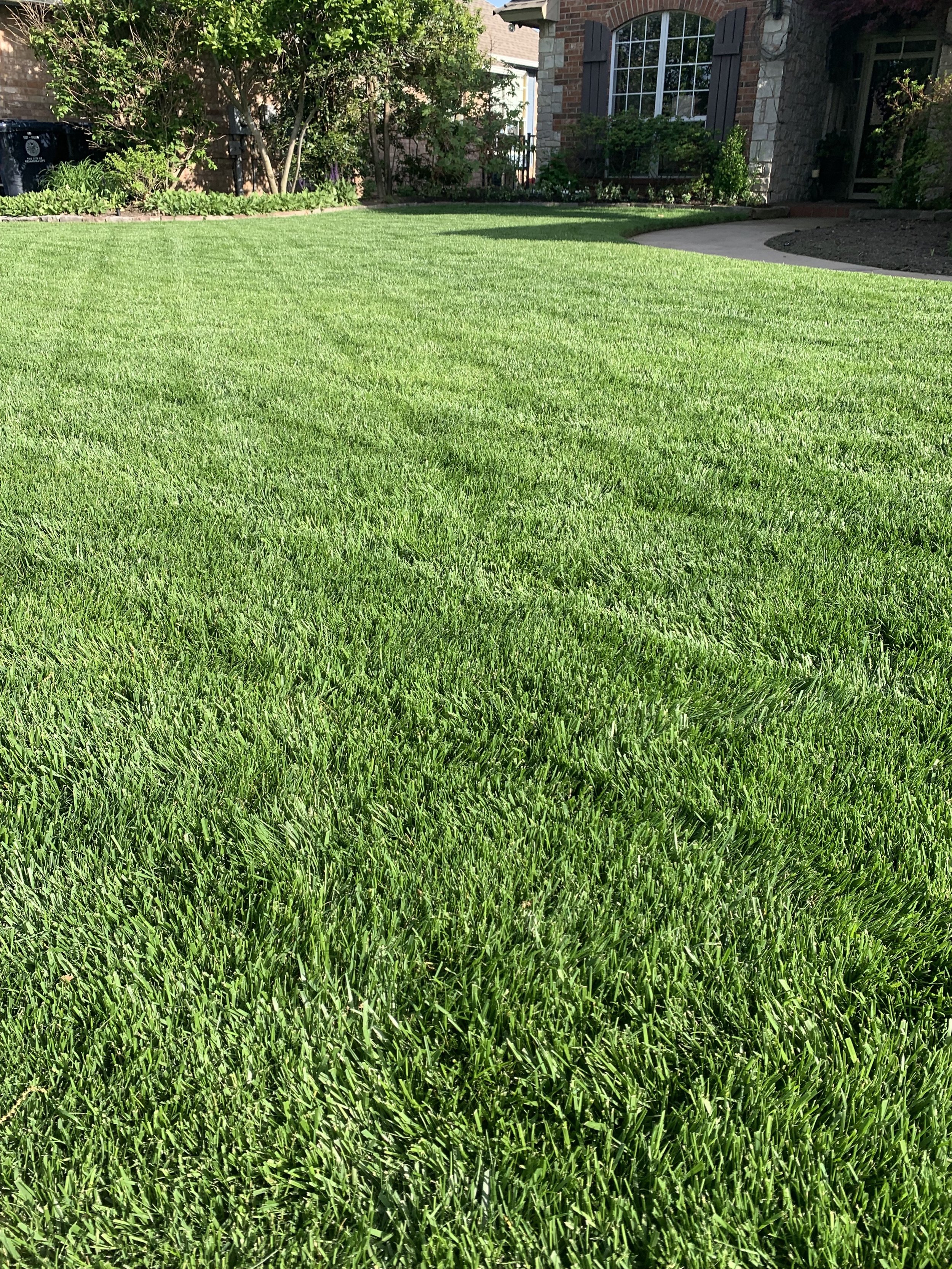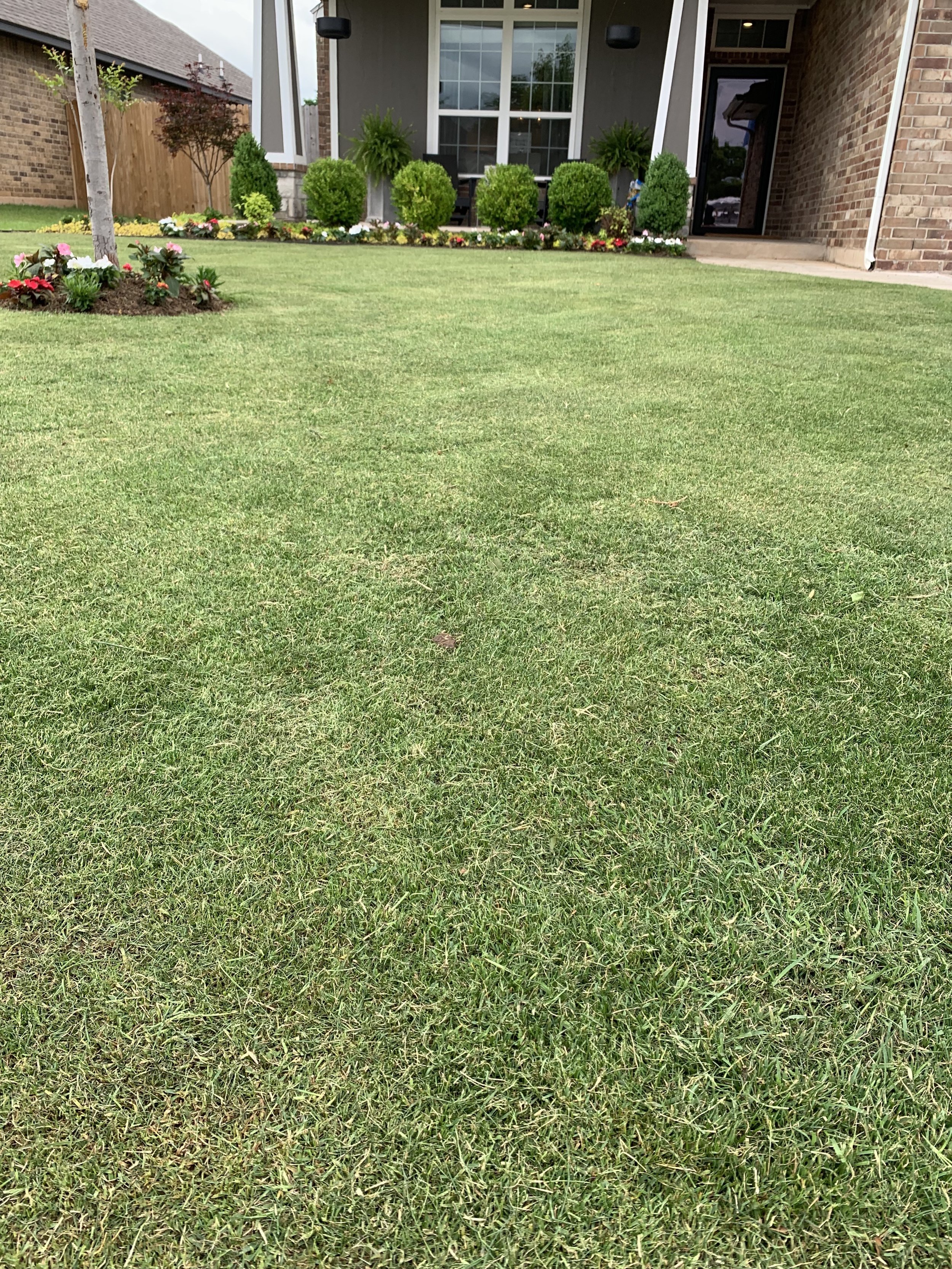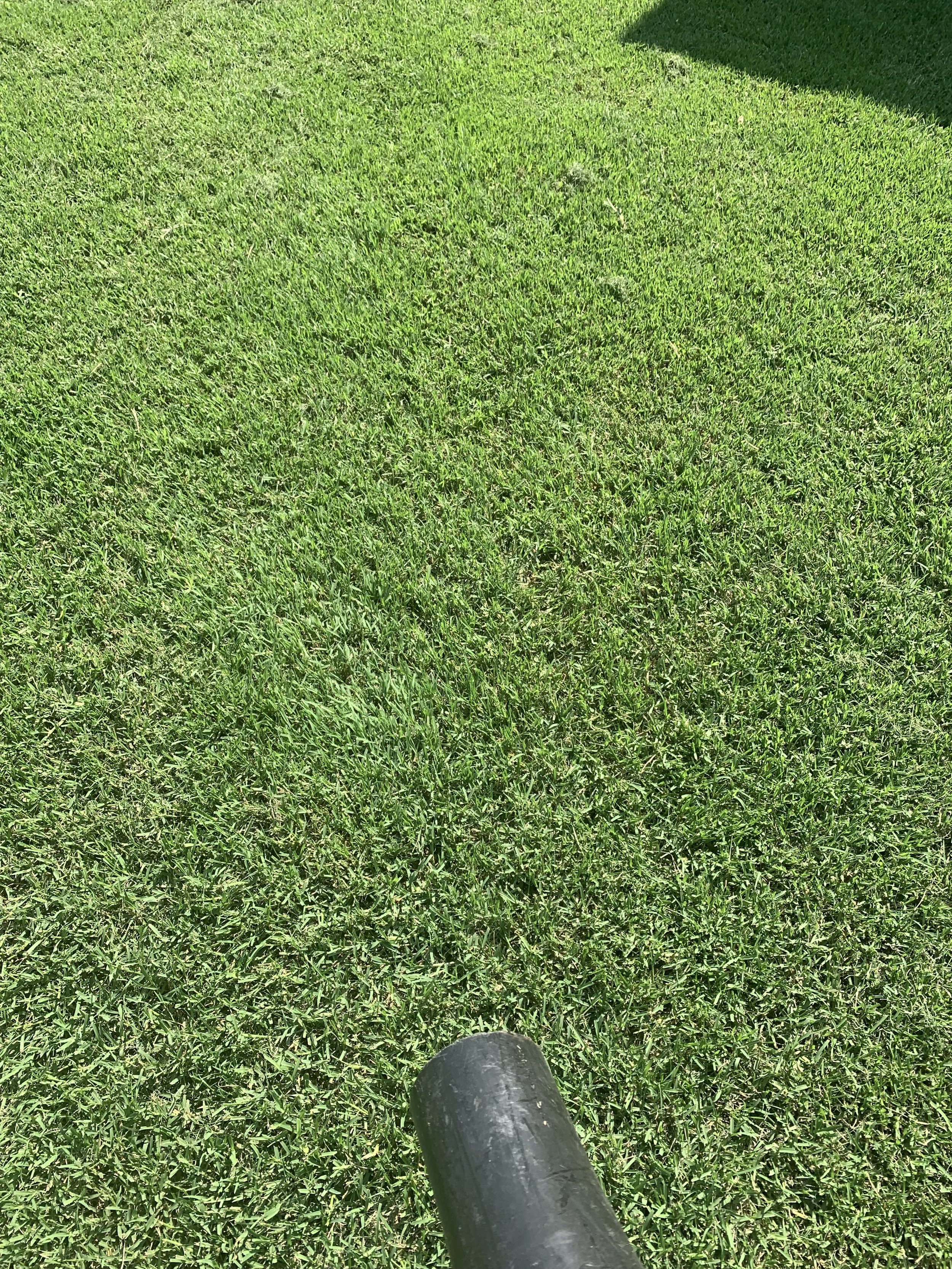One Easy Way To Make A Big Difference In Your Lawn - Don’t Bag Your Clippings!
This is a lesson I learned early in my lawn and landscape career.
The Tale of Two Very Similar but Very Different Lawns
In the late 1980s, the full-service landscape management company that I started while in college provided landscape maintenance for two homeowner associations located directly across the street from each other in NW Oklahoma City.
The economics of the two HOAs were very different resulting in a big difference in services:
The HOA on the south side of the street had a contract with two fewer fertilizer applications than the one on the north side of the street.
The one on the north side also required us to bag and remove the lawn clippings. The south side HOA’s budget couldn’t afford the extra expense for bagging and waste disposal.
The HOA on the north side had an irrigation system with nearly perfect coverage that ran every other day while the one on the other side of the street had an old inadequate system that we struggled to keep operating during dry spells.
Which HOA do you think always had the greenest grass?
Not the one with more fertilizer applications and more water.
The one with the greenest grass was the one that couldn’t afford to have their grass clippings bagged and removed!
Why Does Not Bagging Your Clippings Make Such a Big Difference?
Grass clippings are 80-90% water and nutrients, mostly nitrogen. Every time you throw away a bag of clippings you are throwing away moisture and valuable nutrients.
You can gain one pound of nitrogen per growing season by returning your clippings to the lawn each time you mow. This is a significant amount considering most turf grasses require 4 to 5 pounds of nitrogen for optimal growth, density, and color. Research at the University of Missouri and Kansas State University confirms that 25% of your lawn’s needed annual nutrients are contained in your lawn clippings.
NW OKC Bermuda lawn that is mowed regularly without clippings being bagged & removed.
Freshly mowed Bermuda lawn cut tight with a reel. Clippings were not bagged but a blower was used to redistribute noticeable clippings.
Not bagging your lawn clippings is like someone offering to give you free fertilizer, and you saying, “No Thanks!”
Decaying clippings will increase organic material in the soil. As clippings break down beneficial bacteria increases. Healthy soils contain at least 5% organic material. Most lawns contain 2-3% organic material and research shows that consistently allowing your clippings to return to the soil will increase organic material by at least 1%.
Not bagging your lawn clipping is like someone offering to top-dress your lawn with compost for free, and you saying, “No thanks!”
Fescue lawn immediately after the lawn was cut. 1" of growth was removed. Clippings were not bagged.
If there you have noticeable clippings after you mulch mow, simply use your blower to redistribute clippings.
Mulch mowing leaves in the fall is beneficial for your soil.
Keys to Successfully Mulch Mowing
Mow frequently enough that you only remove 1/3 of the grass per mowing. For example: If your goal is to maintain your lawn at 2”, mow before your lawn grows past 3”. This may require you to occasionally mow every 4-5 days instead of the traditional once per week. When only cutting 1/3 of the growth you are only cutting off the leaves. Grass leaves break down very quickly and do not increase thatch on the soil surface.
If you get behind with your mowing, raise your mower up and gradually lower it back down over the next couple of cuttings. In the worst case, bag the clippings one time and then return to mulch mowing as you regain a more frequent mowing routine.
Don’t mulch mow when the grass is wet. Wet grass clippings clump and don’t break down quickly.
Mowers designed for mulch mowing work best since they cut the clippings multiple times. If you don’t have a mulching mower, most brands have mulching kits and/or mulching blades you can add to your mower. And there is nothing wrong with just mowing without the bag on with most mowers.
Keep your lawn mower blade sharp. A sharp blade will cut the clippings finer instead of tearing the grass leaf.
When you finish mowing if there are any noticeable clippings on your lawn use your blower to spread them out.
One last exception, if you have weeds with seed heads, it is best to bag your clippings and remove the weed seeds from your lawn.
Mulching mowers, also known as recyclers, will nourish the lawn by cutting the clippings into smaller clippings and return nitrogen, moisture, and organic material back to the lawn.
If you haven’t figured it out, I’m a big believer in not catching your clippings. It will make a huge difference in the color of your turf and the health of your lawn. And, when done correctly, you won’t even notice any clippings.
If you mow your own lawn, give it a try.
If you hire someone to mow your lawn, give them permission to not bag as long as they do not leave behind any noticeable clippings or debris.
I know you will like the difference it makes on your lawn.
Lorne Hall
Hall | Stewart Lawn + Landscape
(405)367-3873










